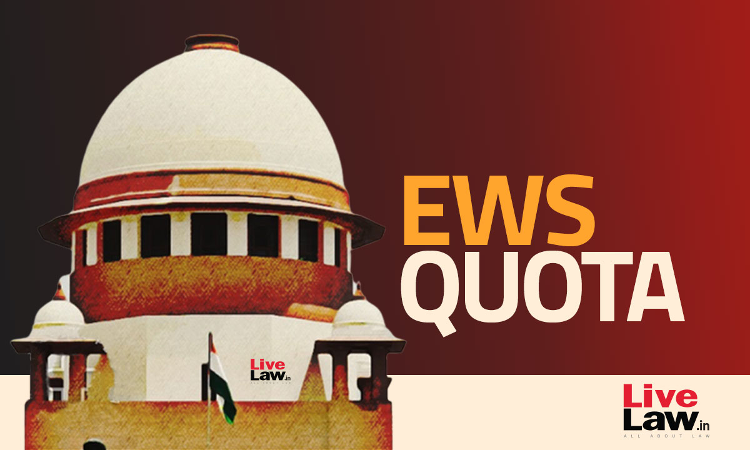EWS Reservation- Supreme Court Constitution Bench Hearing DAY 2- LIVE UPDATES
LIVELAW NEWS NETWORK
14 Sept 2022 10:33 AM IST

Live Updates
- 14 Sept 2022 10:43 AM IST
Kumar: Since then reservation has continued in Mysore except when Balaji struck it down and economic reservation was introduced. In the meanwhile, Maharaja Sahu introduced reservation in 1902 and all states followed suit.
Kumar: This was given statutory recognition under GOI Act 1935 where the beneficiaries of reservations came to be divided in depressed classes, SCs and STs and that was accepted by makers of constitution.
- 14 Sept 2022 10:41 AM IST
Kumar: ...Mysore in 1872. This was introduced in only police, only in inspectors, SI and head constable. Out of 10 posts, 2 posts were earmarked for Brahmins, rest were to be filled by non brahmins including Muslims, Anglo Indians etc.
Kumar: Mysore Brahmins raised an issue and was concedeed by Maharaja. After the Mysore Brahmins got this, non brahmins also started. Because those days revenue was collected exclusively by landlords. That is when the then Maharaja, introduced a benign policy...
- 14 Sept 2022 10:39 AM IST
Kumar: Soon after the census, administration took notice of imbalance of caste because noone knew the population of each caste. Incident happened in Mysore, after census were published, there was a monopoly in state administration. So first reservation policy was conceived in..
Kumar: ...Mysore in 1872. This was introduced in only police, only in inspectors, SI and head constable. Out of 10 posts, 2 posts were earmarked for Brahmins, rest were to be filled by non brahmins including Muslims, Anglo Indians etc.


